Posted on 11/23/2021
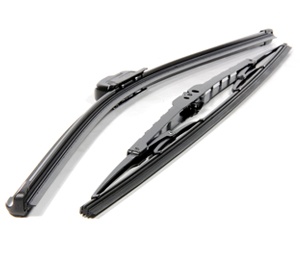
Winterizing your car is essential to surviving Vermont’s frigid winters. Make sure you can rely on your car to transport you and your family safely in any weather conditions Old Man Winter can throw your way. Why take the risk? Be proactive! Make sure your car is mechanically sound before the temperature dips and the snow starts falling. 9 Steps to Getting You and Your Car Ready for Winter.1. Clean your vehicle inside and out. Have body of your vehicle washed and waxed. This preventative measure will protect the paint surfaces from snowy bombardments, and it will also make snow and ice easier to brush off. Since you will be sitting in your car with the windows up and the heat on for the next six months do yourself a favor and give your car a thorough cleaning ASAP. Remove any debris that has collected over the summer, and vacuum the seats and floor. Dust the dash, wash the windows and clean the upholstery. To prevent that stale air / locker room smell ... read more
Posted on 10/24/2021
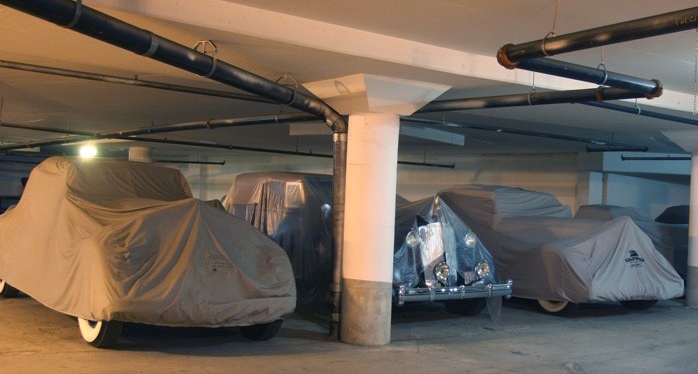
Winter is right around the corner. Many of us put away our summer cars once the leaves have fallen from the trees. Some of you park your cars while you take extended trips out of Vermont once the temperatures dip below freezing. If you store your vehicle for the winter, there are very important steps you need to take so it does not deteriorate while just sitting. First off, never park your car outside and cover it up with a plastic tarp. The moisture under that tarp will cause a big rusty mess. It is always better park your car in a dry garage, storage unit or barn. Please don’t just drive the car into the garage, turn off the ignition and walk away. There are very important steps you need to take so it does not deteriorate while just sitting. If you are storing it for the whole winter, prior to parking it, take it to your favorite auto repair shop for an oil change. Old oil becomes acidic and if left in the motor, contaminants and moisture will eva ... read more
Posted on 10/24/2021
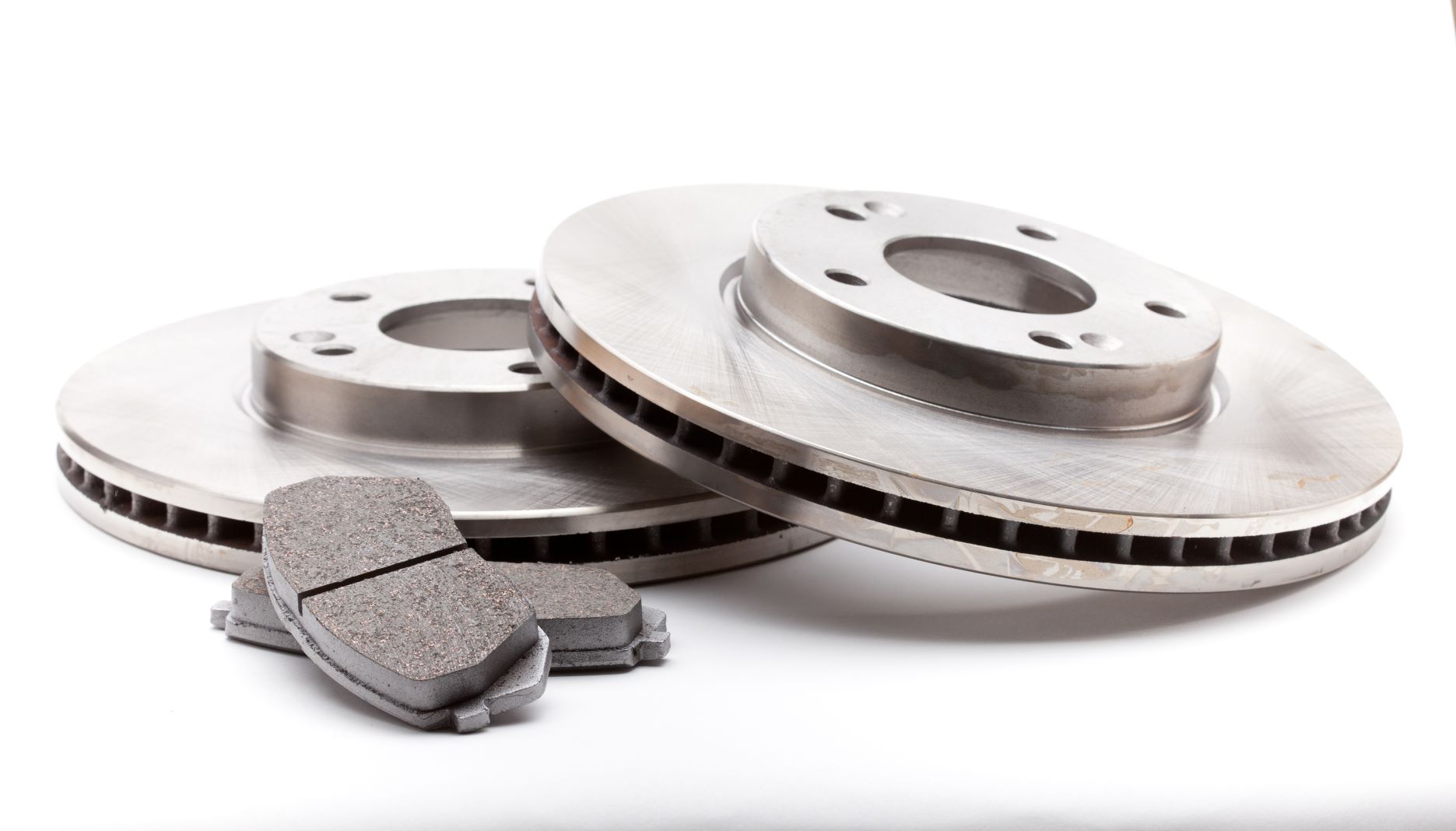
Squeeeeeeel... When you hear this noise coming from another car, it’s annoying. But, when you hear it from your own car, it’s frightening. How many times a day do you have to stop your car? If you actually counted it would be a very high number. Now, imagine what could happen if your brakes took longer than you had anticipated to stop or worse, quit working during one of those stops. You could damage your car or worse you could hurt yourself, one of your passengers, or a unsuspecting pedestrian. If you notice any of the following in your vehicle, then you should have your vehicle inspected by an ASE Certified Brake Specialist. The brake light is lit on your dashboard: This indicating that something is amiss and needs to be inspected ASAP. Grinding or Squealing sound when you apply the brakes. If the noise from your brakes is constant, you have a problem. Consul ... read more
Posted on 6/29/2018

Here in Vermont we have a fairly short season of hot and humid weather. Mostly we can get by rolling down our windows and letting fresh air in to keep us comfortable. But on those wicked hot days most of us really appreciate having the air condition working in our cars to keep us cool . Trying to explain how the air conditioning system of your car works is not an easy task. This is because it’s fairly complicated and counter-intuitive. Basically, when you push the A/C button in your car, you are starting a chain reaction that removes the heat from inside your vehicle and transfers that heat to the outside air. Once all the hot air and humidity has been removed the air becomes cooler. It can be a real ahhhhhhhhhhhh moment once the hot air is removed & you’re left with cool refreshing air . Here is a more technical explanation of how your Air Conditioning works is from Edmunds.com: There are six basic components in the A/C System: compressor, co ... read more
Posted on 10/6/2016

In the United States, mechanics are not licensed. Anyone who goes out and purchases some tools can open up an auto repair shop or get a job at an independent shop or at the dealer. A specific shop or dealer may have a great reputation, but most drivers never know which mechanic will be working on their vehicle. You rely on your car to keep you and your family safe and get to get you to work, school and all those other places that are a major part of your life without breaking down on the side of the road. Plus it’s getting crazy expensive to purchase a car, maintain it and replace any broken or worn out parts. Cars are also so technically advanced, that it makes it nearly impossible for you to be able to work on your car yourself. I call them computers on wheels. The mechanic or auto technician who is working on your car is essentially a car doctor. You wouldn’t go to a doctor who wasn’t a licensed M.D. So, how can you be sure the car-doctor / a ... read more
Posted on 6/7/2016
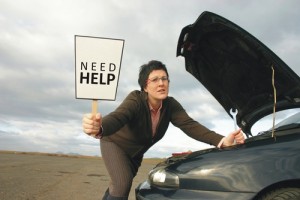
If you haven’t experienced it, I’m sure you have passed someone who has. You’re on vacation and the car is packed to the gills with all you need to make a home away from home. It’s 97 degrees outside and the humidity is thick and heavy. You notice the car’s temperature gauge is creeping higher than it normally does. You feel your heart begin to race and you beg your car not to overheat now. It’s a weekend and the road is jammed with bumper to bumper traffic. If the car overheats you will have to pull over to make multiple phone calls and wait for a tow truck to take you to a garage. Being a weekend you know it’s highly unlikely a garage will be open. Who knows how long you will be stuck in some dinky little town, and you may get taken advantage of, and the icing on the cake is… this is your vacation. You will be wasting precious vacation time getting the car repaired. RememberNEVER, NEVER EVER remove the radiator ca ... read more
Posted on 6/11/2014

Why do Vermont Vehicles Rust More Than Any Other State in the US? Vermont is a very special place to live. GREAT people, Beautiful land, mountains and lakes to play in, yummy food and beer, and a safe place to raise a family. But with over six months of winter and 8,000 miles of unpaved roads, Vermont is tough on the people and on the vehicles. With the combination of dirt roads, mud season, brutal winters and the amount of salt brine that is sprayed on roads and ends up in every nook and cranny of the vehicles, it’s no wonder most of our vehicles rot away long before they would any where else. Almost every week Auto Craftsmen condemns at least one customer’s vehicle because it has rusted away. The engine has plenty of power, the transmission has plenty of life, but the underbody, brake lines, fuel lines, steering and suspension parts are rusty and falling apart. It won’t pass the state inspection, is unsafe to drive and doesn’t make ec ... read more
Posted on 11/15/2012
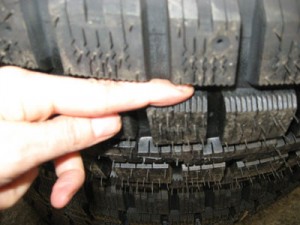
If you own a vehicle with a healthy engine, a strong transmission, a beefy suspension and great brakes, but your tires don’t grip the road properly, then you have no traction and no control. It is the tires that determine the type of traction, grip and control that you have with your car. If you add up the amount you paid for the vehicle + the cost of car insurance + the maintenance and repairs you have in the car + the new stereo you bought for it, the cost of good tires may be one of the most economical purchases you can make. To help illustrate how important tire traction is, I’d like you take a sheet of paper 8½x11 and fold it length wise, then width wise. This is approximately the size of the contact patch of each tire. The traction of these tires must handle the job of starting, accelerating, steering and stopping – a big job for a small amount of rubber rolling on the ground. The compounds that make up a tire vary quite a bit depending on what ... read more
Posted on 10/27/2012
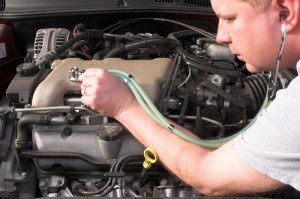
Once a year we take our bodies to our primary care physician to make sure we are still healthy. We are prodded and poked and looked over from head to toe. They take some of our fluids and test them to make sure there are no surprises. Sometimes we are hooked up to machines to see what is going on inside. If we have noticed any weird lumps, bumps, squeaks or rattles, now is the time to ask questions. It is best to find out ASAP what is going wrong so that it can be righted before it becomes critical to our health and well being. Like our bodies, our automobiles need to be looked at on a regular basis to make sure that everything is safe and sound. Like the physician, the auto technician prods and pokes, hooks your car up to machines, checks out the fluids, and checks out any weird lumps, bumps, squeaks and rattles. Just like our bodies, if problems are found sooner than later, accidents are prevented, and fixes are cheaper. Vehicles are misdiagnosed all the ... read more
Posted on 10/1/2012
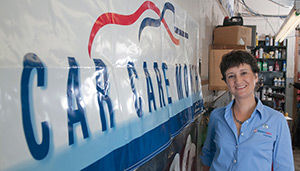
I’m putting on my Women’s Board Hat when I tell you that it’s National Car Care Month & time to get your vehicle ready for winter. Winterizing your car is essential to getting through a Vermont winter with no problems! Here a the 8 Steps to Getting Your Car Ready for Winter. 1. Clean your vehicle inside and out. Getting your vehicle washed and waxed helps protect the paint surfaces from snowy bombardments, and it will also make snow and ice easier to brush off. Since you will be sitting in your car with the windows up for the next six months do yourself a favor and give your car a thorough cleaning ASAP. To prevent that stale air / locker room smell, consider replacing your cabin air filter. It’s also a great idea to take out your carpeted floor mats and replace them with a set of water-resistant rubber mats. 2. Make sure you can see. A winter s ... read more